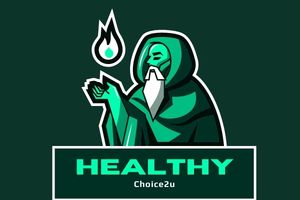Finding the Best Treatment for Depression: A Comprehensive Guide
Depression is a complex mental disorder that affects millions of individuals across the globe. While medication and psychotherapy are often the go-to treatments for depression, finding an effective treatment that works for you can be challenging. The journey towards recovery can be overwhelming, but it’s essential to remember that you’re not alone in this struggle. In this blog post, we’ll explore some of the best Treatment for Depression to help you find the best path towards healing.
Treatment for depression is not one-size-fits-all, and what works for one individual may not work for another. However, several evidence-based treatments have proven to be effective in treating depression. Here are some of the most common treatments for depression:
1. Medication
Antidepressants are medications that are often used to treat depression. These medications work by changing the way chemicals in the brain, such as serotonin and dopamine, interact with nerve cells. Common antidepressants include Selective Serotonin Reuptake Inhibitors (SSRIs) and Serotonin-Norepinephrine Reuptake Inhibitors (SNRIs). These medications can have side-effects and take a few weeks to start showing their effects. Still, they are often prescribed to manage depression symptoms.
2. Psychotherapy
Psychotherapy, often referred to as talk therapy, involves talking to a trained mental health professional. Several types of psychotherapy can be used to treat depression, such as Cognitive-Behavioral Therapy (CBT), which is often used for mild-to-moderate depression. CBT helps an individual identify negative thinking patterns and helps them develop strategies to cope with them. For severe depression, Interpersonal Therapy (IPT), which helps individuals communicate better and connect well with others, may prove more effective.
3. Self-Help
Self-help strategies can also be valuable in treating depression. Exercise, mindfulness, and meditation are some effective self-help strategies that can help improve mood, reduce anxiety and stress level. Engaging in activities that bring joy, such as taking a walk in nature, pursuing a hobby you enjoy, or spending time with loved ones, can also help reduce depression symptoms.
4. Alternative Treatments
Alternative treatments, such as acupuncture, massage, and herbal supplements, have become increasingly popular in treating depression symptoms. While acupuncture and massage can have physical and mental health benefits, they may not be beneficial for all individuals. Herbal supplements, such as St. John’s Wort, which have been used for centuries to treat depression, should be taken with medical supervision, as they can interact with other medications.
5. Medication-Assisted Treatment
Medication-Assisted Treatment (MAT) is a relatively new treatment for depression, which involves combining medication with psychotherapy. MAT is often used to treat people with chronic depression who are not responding well to antidepressants or who have severe depression. The medication used in MAT is Ketamine, which has shown promising effects in helping people with depression.
Conclusion:
Depression is a mental disorder that can significantly affect an individual’s life. It’s important to remember that while depression may feel overwhelming, there are effective treatments available. Finding the right treatment for depression can take time, and it’s essential to be patient and work jointly with your healthcare provider to find the solution that best fits you. A combination of medication, psychotherapy, self-help strategies, and alternative treatments may help to reduce depression symptoms and improve the quality of life. Remember to prioritize self-care, stay positive, and seek help when needed, and you’ll be well on your way to recovery.



